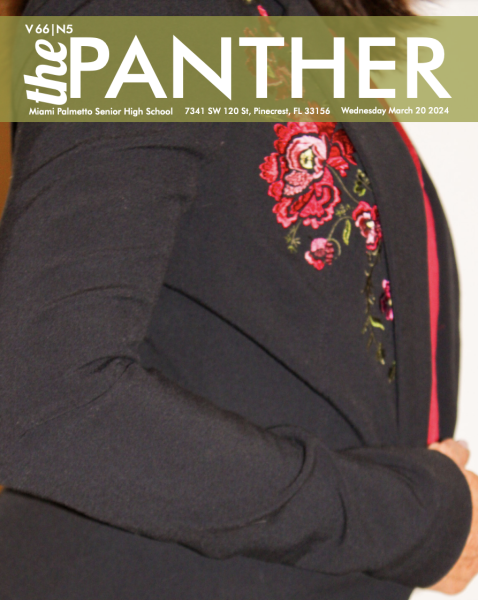FACEOFF: Is it Best to Be Real on Social Media?
September 23, 2022
NO (A.S)
It is an indisputable fact that, regardless of how hard influencers may try, social media will never “BeReal.” While many preach the idea of being candid and raw on social media, the rose-colored glasses effect social media possesses is not necessarily a bad thing. Perhaps it is better to “BeFake.”
Being authentic on social media is the common goal of many, yet to be truly authentic, how much of one’s personal life should be shared? On social media, there is a fine line between authenticity, transparency and vulnerability. Authenticity means being sincere and genuine in the posts a user shares, while transparency is sharing deeply and personally in what one posts. Now, when it comes to being authentic and transparent, a user picks and chooses to share what gets uploaded— so are people really being authentic here? With the idea of transparency and authenticity comes the threat of vulnerability. If one truly shares their life— all aspects, good and bad— then they are opening themselves up to the threat of too much inappropriate exposure.
New social media platforms like BeReal have taken the teenage demographic by storm with its mission statement, seeking to offer an alternative social network system, and as stated by the company “is your chance to show your friends who you really are.” Yet the more “friends” you add, the less real this principle becomes. This platform functions as users receive a notification at a random time, once a day saying it is ‘time to BeReal.’ This opens up a two-minute window for the user to post a picture of what they are currently doing. Sounds great right? Wrong. The very purpose for the creation of the app gets demolished the very second users receive the notification. A common theme for users is to jump up and stage a fun activity to capture within the two minutes and “fake” their current pastime. Some individuals take it a step even further, waiting vast periods of time after the notification is sent out until they are engaging in an “aesthetically pleasing” activity like a party or concert to show off to their so-called “friends.”
This is not to say that being real on social media is inherently bad. The rise of influencers becoming “more real” has allowed for a sense of relatability, even among Hollywood stars. Again, however, with any platform, if an influencer decides to share a post, it is at their own discretion with multiple rounds of review to “fix” the preset level of “authenticity.”
At the end of the day, social media will never be real, and that is not a bad thing. After a hard long week, when I turn on a youtube video or scroll through hours of TikTok watching influencers travel the world, it is refreshing to see people having fun. In a negative world, it is nice for influencers to be “relatable.” Watching someone have fun and be happy is entertaining and revitalizing.
Yes (A.J)
Instead of living up to unrealistic standards, social media influencers have now begun prioritizing making their content relatable and realistic. This transition that content creators are implementing is significant because it shows viewers why it is unrealistic to compare their lives to those shown through social media. Due to this, an average person realizes their struggles are more common than they had previously believed, since influencers are taking the initiative to share their struggles as well, allowing viewers to connect with celebrities.
With the choice of what to post and what not to, people can show how they live their life through rose-colored glasses. It is crucial to be not only authentic but also transparent since the targeted audience of most social media sites are teenagers. This then creates an open space and allows for honest content. Furthermore, this conveys not only the natural lights in their lives, but also that it is okay to have flaws and struggles. It is essential nowadays to know that we are not alone in our times of difficulty. There are always people who are going through the same exact thing, and by sharing this principle through social media, it provides a safe space and comfort for those who may have otherwise felt alone. With others sharing what they have or are currently going through, people can connect and find ways to even help each other.
Another viewpoint of why being ‘real’ on social media is beneficial, is through the way people may view their bodies. On social media, it is common to come across people who edit their faces and bodies, whether by airbrushing their face, or changing the appearance of their body, or editing out flaws or insecurities. As times evolve, people share and normalize the qualities that they may dislike. Through posts where influencers share all imperfections of their body as well, followers will begin to feel more comfortable in their own skin and gain confidence.
With this new goal to be authentic on social media, new platforms have emerged, such as “BeReal.” Due to the way that the app works, users have the ability to realize that people’s lives are not always as aesthetic as they may be seen through social media. Without the ability to only post when you want to, people must post at this specified time whether they are alone lounging around or if they are out. The app also does not allow for any filters or edits on the photos being shared.
Naturally, I can not say for certain that social media is completely authentic because some people and influencers still give their followers an unrealistic perspective of how they live, but at least progress is being made in creating a safer space for struggling teens through social media. As we progress through the years, we can only infer that social media will become increasingly more authentic. Many can agree on the importance and benefits of sharing all aspects of life, the good and bad, and therefore allow for more casual and genuine content.













